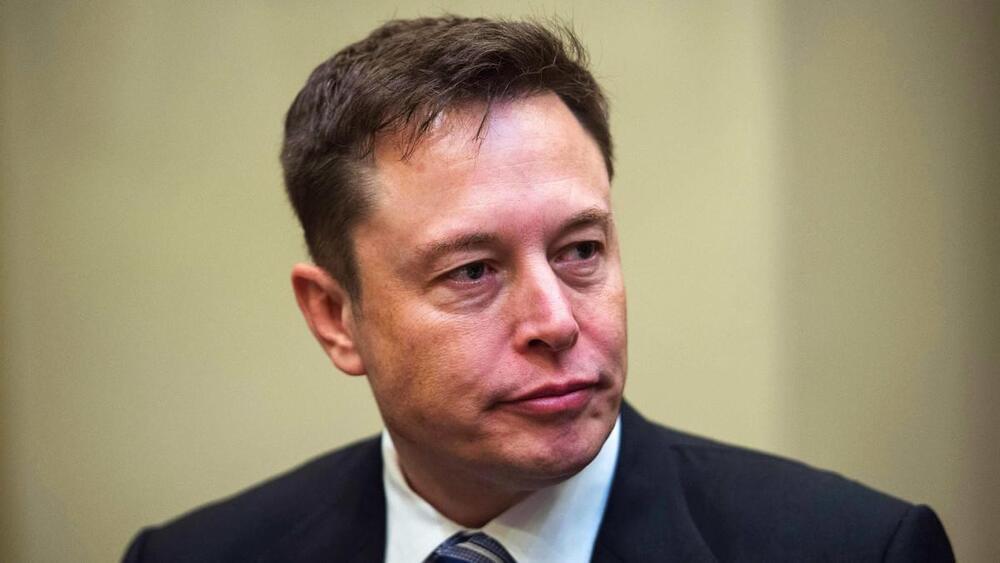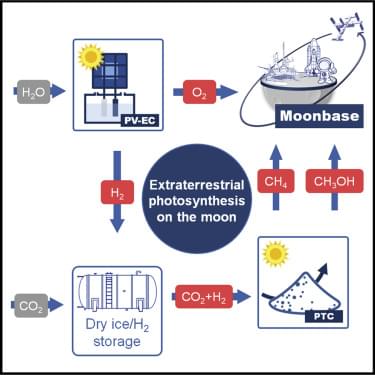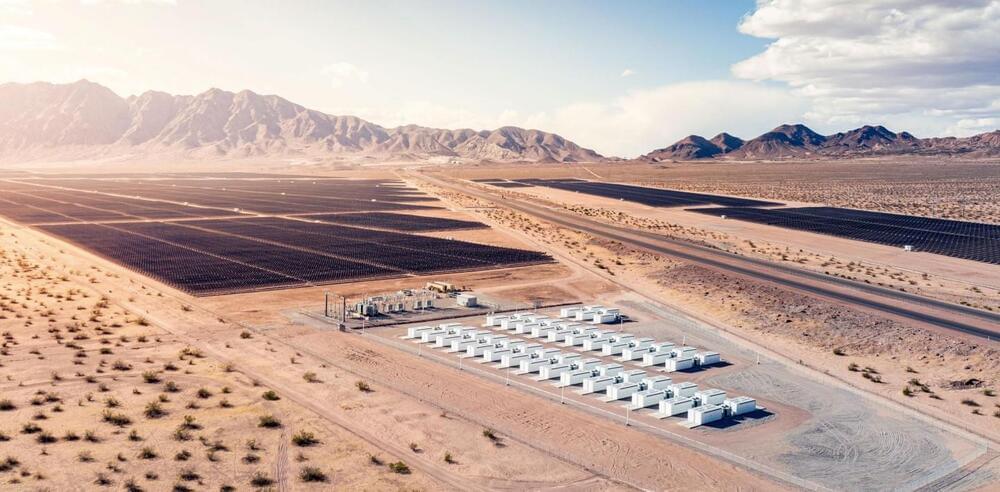
Category: sustainability – Page 349



A portable wind turbine that fits in your backpack? Yes please
Canadian company Aurea has developed a portable wind turbine that fits in your backpack. Called Shine, it weighs just three pounds, it’s about the size of a water bottle, and it can charge any USB device, or up to four phones (though not at the same time). The turbine is shaped a bit like a mini Zeppelin. It features three gently curved blades that fold out like flower petals and a collapsible tripod that is stored inside. The product launched on Kickstarter last year and on Indigogo last week. It has raised over $270,000 so far and will be shipping in a matter of months–just in time for camping season.
Humans have been harnessing the wind for centuries, but it has always required massive infrastructure, be it windmills or wind turbines. In recent years, engineers and designers alike have taken it upon themselves to reinvent the technology by playing with scale and form (think wind turbines integrated into walls or giant grids made of tiny turbines). But Aurea’s founders had a different goal in mind: Make wind power portable.
Shine can be used during a blackout at home, and serve anyone who needs access to energy while not attached to the grid. But its most likely users are going to be campers, RVers, and nomads, making weight a crucial factor. “People said, ‘We won’t carry it if it weighs more than three pounds,’” says Cat Adaley, a mechanical engineer who founded Aurea in 2017 and developed Shine with entrepreneur Rachel Carr. “Every design feature was weighed.” (The battery makes up a third of the weight, and the turbine is made of polycarbonate reinforced plastic with a glass composite; the tripod is aluminum.) All of this helped the founders create a portable turbine that has the highest power to weight ratio of any renewable energy at this scale, Adaley says.

Electron Motion Tracked in a Quantum State of Matter Using X-Ray Pulses Less Than a Millionth of a Billionth of a Second Long
Less than a millionth of a billionth of a second long, attosecond X-ray pulses allow researchers to peer deep inside molecules and follow electrons as they zip around and ultimately initiate chemical reactions.
Scientists at the Department of Energy’s SLAC National Accelerator Laboratory devised a method to generate X-ray laser bursts lasting hundreds of attoseconds (or billionths of a billionth of a second) in 2018. This technique, known as X-ray laser-enhanced attosecond pulse generation (XLEAP), enables researchers to investigate how electrons racing about molecules initiate key processes in biology, chemistry, materials science, and other fields.
“Electron motion is an important process by which nature can move energy around,” says SLAC scientist James Cryan. “A charge is created in one part of a molecule and it transfers to another part of the molecule, potentially kicking off a chemical reaction. It’s an important piece of the puzzle when you start to think about photovoltaic devices for artificial photosynthesis, or charge transfer inside a molecule.”

Making Electricity Cheaper: A Cellphone-Sized Device Automatically Adjusts a Home’s Power Use to Save Money
A cellphone-sized device automatically adjusts a home’s power use up or down to save the consumer money and increase the resiliency of the electric grid.
The effects of climate change are pushing electrical grids around the world to their limits. Last year, unprecedented cold weather caused people in Texas to turn up their thermostats, which overwhelmed the power grid and caused days-long power outages. And in California, the power is turned off before there is a high possibility of a fire.
To combat the electric grid’s vulnerabilities and cut down on the use of non-renewable sources of energy, researchers at the Department of Energy’s SLAC National Accelerator Laboratory have developed technology that automatically adjusts a home’s power use up or down in response to fluctuating prices that are established by real-time market demand.
Scientists Discover a Massive Groundwater System in Sediments Below Antarctic Ice
Many researchers believe that liquid water is a key to understanding the behavior of the frozen form found in glaciers. Meltwater is known to lubricate their gravelly bases and speed up their march toward the sea. In recent years, scientists in Antarctica have discovered hundreds of interconnected liquid lakes and rivers cradled within the ice itself. And, they have imaged thick basins of sediments under the ice, potentially containing the biggest water reservoirs of all. But so far, no one has confirmed the presence of large amounts of liquid water in below-ice sediments, nor investigated how it might interact with the ice.
Now, a research team has for the first time mapped a huge, actively circulating groundwater system in deep sediments in West Antarctica. They say such systems, probably common in Antarctica, may have as-yet unknown implications for how the frozen continent reacts to, or possibly even contributes to, climate change. The research was published in the journal Science on May 5, 2022.

Extraterrestrial photosynthesis
“In light of significant efforts being taken toward manned deep space exploration, it is of high technological importance and scientific interest to develop the lunar life support system for long-term exploration. Lunar in situ resource utilization offers a great opportunity to provide the material basis of life support for lunar habitation and traveling. Based on the analysis of the structure and composition, Chang’E-5 lunar soil sample has the potential for lunar solar energy conversion, i.e., extraterrestrial photosynthetic catalysts. By evaluating the performance of the Chang’E-5 lunar sample as photovoltaic-driven electrocatalyst, photocatalyst, and photothermal catalyst, full water splitting and CO2 conversion are able to be achieved by solar energy, water, and lunar soil, with a range of target product for lunar life, including O2, H2, CH4, and CH3OH. Thus, we propose a potentially available extraterrestrial photosynthesis pathway on the moon, which will help us to achieve a “zero-energy consumption” extraterrestrial life support system.”
Chang’E-5 lunar soil was used as the lunar extraterrestrial photosynthetic catalyst for water splitting and CO2 conversion. Solar energy and water were converted into a wide range of valuable products for lunar life support, including O2, H2, CH4, and CH3OH. A “zero-energy consumption” extraterrestrial life support system was thus proposed.

Scientists just found mountains of sugar hidden beneath the ocean
Many coastal areas around the world are home to lush green meadows — all thanks to seagrasses.
As the only flowering plants growing in marine environments, these meadows are magic: One square kilometer of seagrass stores nearly twice as much carbon as land-based forests, and it does so 35 times faster. This makes seagrasses one of the most efficient global sinks of carbon dioxide on Earth.
And this isn’t the only remarkable thing about them, a new study has revealed. Submerged beneath the waves, seagrass ecosystems hold colossal reserves of sugar we never knew existed before, with roughly 32 billion cans of Coca-Cola’s worth of sweet stuff hiding in the seabed.

Tesla releases its 2021 Impact Report, shows strides toward full sustainability
Tesla has released its 2021 Impact Report, and it revealed that the company is making huge strides in its efforts to help accelerate the world’s shift to sustainable energy.
From the people it employs to its supply chain and products, Tesla is transforming itself into an entity that is cleaner, more efficient, and more responsible than ever before.
Tesla’s website focused on four notable portions of its 2021 Impact Report, namely the company’s people, environment, supply chain, and products. In each of these topics, Tesla highlighted the steps it took to better itself while setting a standard for the automotive industry as a whole.

Job interest in Twitter skyrocketed more than 250% since Elon Musk moved to take over. But current employees are nervous
Elon Musk cast Twitter’s future into uncertainty when he made a successful $44 billion bid to acquire the company last month. He will take over as temporary CEO once the deal is complete, CNBC reported Thursday morning.
While countless Musk fans, and a slight majority of Americans—59%—approve of the takeover according to recent data from The Harris Poll, some current Twitter staff worry that it will dramatically change the company’s culture, and overall direction.
It’s still unclear how a Musk-run Twitter might impact the company’s ability to retain current staff and recruit new employees. The company presented the takeover as a potential threat to its staffing abilities in an SEC filing Monday.
But at least casual interest in open positions at the company has skyrocketed since the Tesla billionaire showed serious interest in taking over the company.
On Thursday, Daniel Zhao, a senior economist and data scientist at the job insights platform Glassdoor, tweeted that interest in job openings at the social media giant was up 263% between April 24 and April 30.
Full Story: